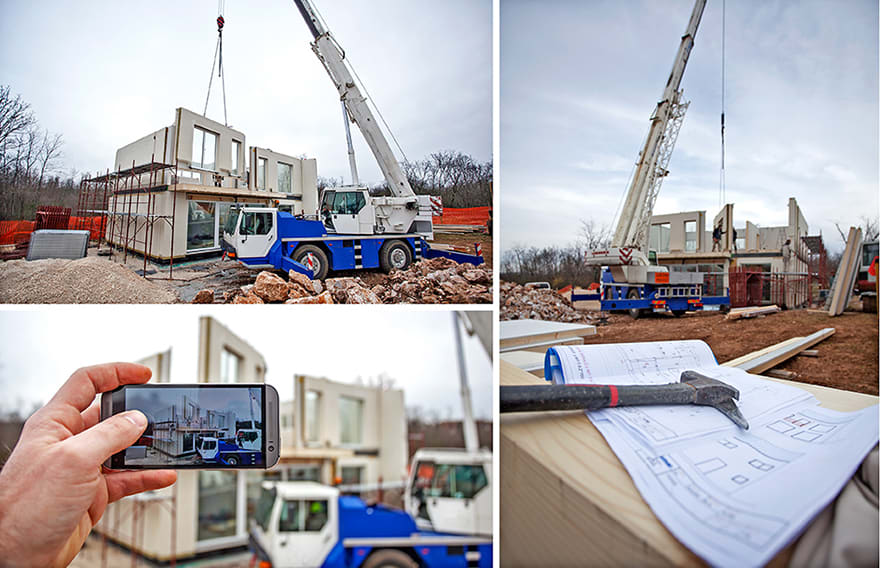Standardised BIM data will support the construction of up to 1,000 homes a year produced at a new offsite factory in Kent.
Berkeley Group offshoot Berkeley Modular began construction of the production facility in Gravesham last month, which will initially manufacture volumetric modular units for medium- to high-rise apartment blocks intended for multiple family occupancy.
The firm has partnered with building information specialist CoBuilder to develop a structured product data format for all materials, components and equipment incorporated into the homes, including COBie data that will be used during construction and for ongoing repair and maintenance.
Peter Foster, CEO of CoBuilder, told BIM+: “At present, the offsite industry creates data in a very ad hoc fashion, but when Berkeley has set up its data structure based on our solution, the entire supply chain will work to the same template and format, including the machines in the factory.”
Data from manufacturers will be digitised using standard-based product data templates to avoid duplication of effort and detailing error. It will cover all essential and non-essential characteristics, including product dimensions, colour and fire rating, which can be transferred into BIM using either using application programming interface (API) or a plug-in developed by CoBuilder.
Graham Cleland, director of Berkeley Modular, said: “Structured product data will be key to creating our digitally-enabled agile manufacturing platform and a seamless interface from design model to machine. This will enable maximum efficiency, both in terms of the creation of homes in the factory and the ongoing running of the built asset after they are built.”

Modules for “apartment-type solutions” will be pre-assembled in the factory, then transported to site and erected
Berkeley Modular intends to provide building owners with operation and maintenance data in a digital format easily accessed online. “25 years down the line they will be able to log on, locate information about a specific window system and see what they need to do to replace it,” said Cleland.
Berkeley is also experimenting with rule-based logic in software to help streamline the design process so designs are automatically adapted to match parameters required for manufacture.
“We are playing about with iLogic, but the final version of the software may utilise Revit or an Inventor plug-in,” said Cleland.
The factory in Kent is being built on a 160,000 sq ft site and is due to start production in January 2020. It will deliver around 20% of Berkeley’s output of 4,000-5,000 homes a year, equivalent to 800-1,000 homes.
Volumetric modules for “apartment-type solutions for multiple family occupation” will be pre-assembled in the factory, then transported to site and erected. Facade and roof treatments will be applied separately on site.
“The factory process will be sophisticated and highly automated,” said Cleland. “Enterprise resource planning, manufacturing execution systems, structured product data and advanced BIM systems will all be part of it.”












